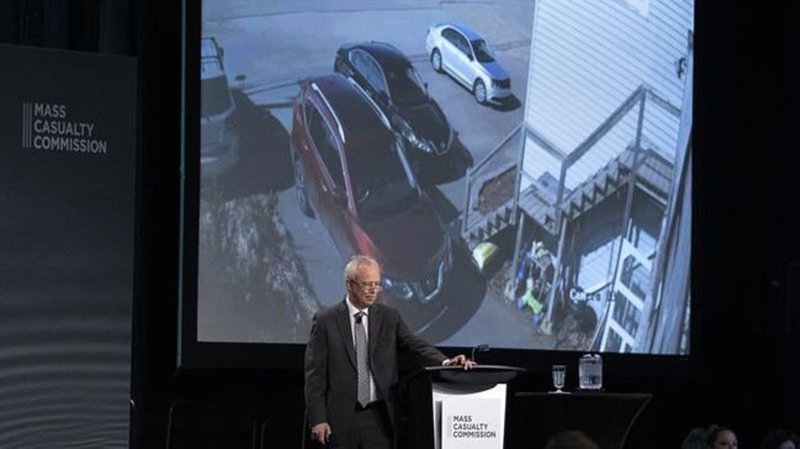
Families describe tense encounters with RCMP on N.S. mass shooting’s second day
HALIFAX — Documents released Thursday describe tense and tragic moments as RCMP officers and then distraught family members arrived at the scene of brutal killings during the second day of the 2020 Nova Scotia mass shooting.
The killer had by mid-morning of April 19, 2020, killed 17 people and was in his replica RCMP vehicle on his way through Debert, about 20 kilometres north of Truro, having eluded police once again.
According to the summaries prepared by the public inquiry into the killings, at about 10 a.m. the perpetrator pulled beside Kristen Beaton, a continuing care assistant pregnant with her second child, left his vehicle and shot her through the window of her car. Beaton had been travelling between communities to provide care for clients since early that morning.
After killing Beaton, the murderer drove back to the car of Heather O’Brien, a VON licensed practical nurse parked a little over 300 metres behind her. He shot her multiple times as she was on a cellphone call with a friend. He then drove from the scene towards a secondary highway that went east to Truro.


